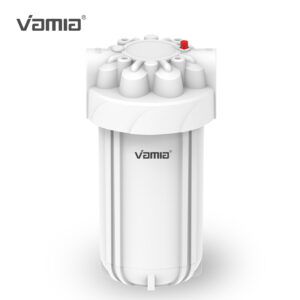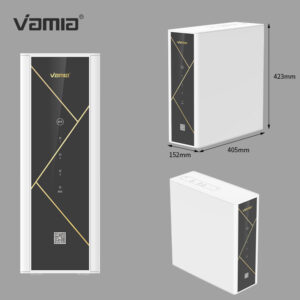To Tank or Not to Tank: The Pros and Cons of Water Purifier Storage Tanks
Many water purifiers come with storage tanks, but are they necessary? Let’s weigh the advantages and disadvantages:
Pros of Storage Tanks:
Pros of Storage Tanks:

- Consistent Water Supply: Tanks store pre-filtered water, ensuring a steady flow during peak usage, which is ideal for large families or offices.
- Lower Pressure Requirements: Tanks compensate for low water pressure, making them suitable for older homes or areas with inconsistent supply.
- Energy Efficiency: Systems with tanks often run the pump intermittently, reducing energy consumption compared to on-demand models.
Cons of Storage Tanks:

- Space Constraints: Tanks require additional under-sink or cabinet space, which may be an issue in small kitchens.
- Maintenance Concerns: Standing water in tanks can pose a risk of bacterial growth if not cleaned regularly. Look for tanks with antimicrobial linings
or self-cleaning features. - Slower Refilling: After heavy use, tanks may take time to refill, temporarily limiting water availability.
Water Purifier Factory, Water Purifier For Home, Water Purifier Machine,Water Purifier, Water Filter Purifier System
Alternatives: Tankless (on-demand) systems offer instant filtration without storage, making them compact and hygienic. They’re best for households with
consistent water pressure and moderate usage.
Ultimately, the choice depends on your space, water demand, and maintenance preferences. Both options have their merits, so assess your needs before deciding.
consistent water pressure and moderate usage.
Ultimately, the choice depends on your space, water demand, and maintenance preferences. Both options have their merits, so assess your needs before deciding.
To Tank or Not to Tank: The Pros and Cons of Water Purifier Storage Tanks

